The Canadian Broadcasting Corporation's European bureau - situated in an unspectacular five-storey building along Great Titchfield Street in London - was as busy and vital and chaotic as an aficionado of journalistic thrillers about foreign espionage could wish.
In the central part of the large, low-ceilinged area, desks were crammed side by side, populated with fraught-looking journalists and producers clacking away urgently at keyboards and half-whispering evidently vital messages into shoulder-held cellphones. I was visiting the office to speak with Margaret Evans, '14 BA, the CBC's chief European correspondent.
We had agreed in advance to meet in London, and as I took a seat in her office - separate from the general chaos - I observed the knick-knacks and paraphernalia gathered from two decades of reporting from every corner of the globe. There are few places on the planet Evans has not placed under her journalistic microscope. Around the office were scattered train tickets from eastern Europe, books on jailed banana-republic dictators, photos of Evans with foreign journalists of various nationalities, pens and pencils and buttons from hotels around the globe, credentials from a multitude of hot spots, and a bottle of champagne seemingly gifted to her by Justin Bieber, with the comically incongruous note - "Margaret, thanks for being a Belieber" - a slapstick touch in an otherwise rich and serious-minded intellectual environment. (Later, she explained the champagne was a gift from her colleagues who were teasing her following a Bieber interview.)
The scene was set for an intriguing conversation, yet almost immediately upon sitting down, I came to realize that our interview was going to proceed quite differently than I'd hoped. Evans, it could be said, was lacking a certain presence. What I mean is that she literally was not there. As events transpired - and in keeping with the nature of this story - Evans had been called to South Africa to report on what at that time seemed to be Nelson Mandela's imminent death (which sadly came to pass some months later). Evans, her voice rippling with digital staccato, spoke by phone from Pretoria, South Africa. She apologized for not being able to meet in London, but I assured her she had chosen the correct story.
'Theatre of the Mind'
Margaret Evans has been based in the CBC's European Bureau since the summer of 2011, and her experience as a correspondent is long and deep. She reported out of Jerusalem from 2004 to 2011 and was in London between 1999 and 2004. She earned a BA in history in 1989 (an oversight - forgetting to officially apply for her degree - means her grad year is listed as 2014). She went on to do a master's in journalism at the University of London in 1991, after which she immediately went to Brussels to begin freelancing. Brussels would normally not have been viewed as a hot spot for a budding foreign correspondent wanting to make her mark, but it was a counterintuitive master stroke. The European Union was in single-currency discussions, and the Balkan wars were beginning to intensify; many of the key debates and negotiations were taking place in Brussels. She got plenty of work. "It was terrifying in a way," she tells me over the telephone. "It was so much financial reporting, about so many complex things, and my training was not financial!"
Evans had always wanted to report from abroad, which was why she did not return to Canada after her schooling; although, as she says, it wasn't as if she had any grand vision or long-range plan. "I only knew I wanted to do this kind of work. I was starving myself trying to survive in print journalism, so I thought I'd broaden my earning horizons by trying radio." Evans was delighted by what she found there. "It has always been such a lovely medium - so simple in a way - and you get to use your words to maximum effect. You know the old saying, 'Radio is the theatre of the mind.' "
Ordinary People, Extraordinary Stories
Evans is known today for her skills as a keenly intuitive political and social storyteller, which she comes by naturally; it was in the air around the house as she was growing up. Her mother, Una MacLean-Evans, was a political organizer and firebrand for the Liberal party in Alberta for decades. She was tireless in her work for the party, for national unity and for social justice causes, some of which Margaret was drafted for in her youth. Evans' father, Art, was a gruff, humorous columnist for decades with the Edmonton Journal and worked in the Studs Terkel tradition, with the fedora and streetwise storytelling about local characters. Evans reflects both sides of her upbringing, in that her work features a blend of high political analysis grounded with the stories of ordinary people.
"My dad used to tell me that you're either a journalist or you're not," Evans tells me when I meet up with her again in Edmonton in fall 2013 during a trip home to visit her family. In keeping with most of the (minimal) self-analysis she indulges in, Evans is downbeat about the nature of her abilities. "There's a discipline to getting to the heart of the matter in this kind of work, for sure. You use words to reflect a mood or a feeling, rather than just saying something literal. But I don't really even think about it anymore. It's just the way I write."
Radio is, in many ways, the great focuser. The absence of visual imagery, the short time span, the likelihood that the listener is engaged in another task while listening: all these elements demand clarity and concision from a reporter. "You've got maybe 90 seconds," says Evans. "It forces you to choose, to narrow in on a kernel quickly, but to not make snap judgments. I guess that comes with experience. I mean, somewhere like the Middle East, you have to be so aware - you simply cannot afford to have a superficial understanding of what's going on there. But once you have that, once you feel it, then you can get to the centre of things quickly, use words to reflect a mood or a feeling, create emotional resonance, find common humanity." She pauses, thinks about it for a moment. "There's always drama, but you just hope you make the right choices."
A Responsibility and a Privilege
Jay Rosen, a longtime journalism professor at New York University, wrote in "What I Think I Know About Journalism," a 2011 essay, that "information alone will not inform us." Meaning it takes judgment and intelligence to transform information into knowledge.
"If we did not have the kind of foreign reporting that someone like Margaret does, we'd be diminished," Andrew Cohen tells me. Cohen is a columnist and professor of journalism at Carleton University in Ottawa and an experienced correspondent himself, having worked as the Globe and Mail's Washington correspondent from 1997 to 2001, among other foreign assignments. "Our citizenry would be less informed, and if we didn't have good information, we'd make poorer decisions, decisions based on rhetoric and prejudice. A diminished media means a less-informed citizenry, which means, ultimately, that we wouldn't hold our political and business leaders to account to the degree we ought to. We become better informed through people and organizations we trust to be as unbiased and accurate and thorough as they can be. Poor journalism erodes our democracy."
The skills "desperately needed in modern journalism," writes James W. Carey in an introduction to the book Thinking Clearly: Cases in Journalistic Decision-Making, are: "critical thinking rather than habitual reaction; trust and respect rather than cynicism and contempt; tough-mindedness rather than sentimentality, timidity and close-mindedness; and most of all the realization that journalism is a craft depending on lifelong cultivation of intelligence and discipline."
Which is why we put our faith in the work of correspondents like Margaret Evans, says David Walmsley, who was CBC's director of news content, responsible for domestic and international news, when I spoke to Evans. "She's considerate, thoughtful, intelligent, mature. Not in a rush to judge, brave beyond words where she has and does put her life on the line for her stories. Margaret is a storyteller who fully understands the social contract with the audience. It is a massive privilege to be invited into people's lives, and Margaret ensures her invitation through an ecumenical zeal to get the story right."
Though she radiates the humility of someone who knows she isn't the story, Evans is also nevertheless too intelligent not to be aware of the responsibilities, and the power, that come with her role. "I feel a pressure, no doubt," she tells me. "But to me, it's a healthy pressure, one that I can't complain about. I have a responsibility, because journalism is a public service. I have an obligation to do my best to get it right. That may be something of a cliché, but it really is about trying to represent the different truths that are out there. I'm not out there to transcribe a court case. I need to spend the time in a place to represent it properly, to understand it, and if I can't do that, I don't have the authority to report on it."
'We believe in a Margaret Evans'
I ask Evans how that place, that particular story, is decided upon. In other words, how is the decision made about what the public has to know, about what stories they need to hear? "I often pick my own ideas," she says. "Sometimes the assignment editors are the ones who drive the idea, and they ask me to go to a certain place to cover a certain story. A good example happened when I was in Dhaka [where a factory collapse in April 2013 killed more than 1,100 garment workers]. That story was driven out of the Toronto office, but after reporting on the initial tragedy of the factory collapse, I was able to also create a 14-minute series. I looked at the development of women in Bangladesh. I looked at the role of the growing voice of hardline Islam in Bangladesh and how this is affecting the political situation there. So I was able to work on multiple stories at once."
Deciding on the stories of the day is a collaborative process, says Evans. It's very much an "open relationship" and people talk freely about what they see coming down the pipe. It's not always as dramatic as an editor calling you up and shouting at you to pack a bag and catch a plane to Timbuktu, but the "phone call and go" is very typical.
"The night Nelson Mandela died I was in Kyiv on another story when I got the call. I had to be on a plane within four hours," she says.
Walmsley, naturally, attaches considerable importance to the role of the foreign correspondent in helping citizens understand the world around them. In a discussion about Evans' work and the role of the foreign correspondent, he tells me there is no doubt that the things journalists uncover and report on "are an essential ingredient when it comes to strengthening democracy," especially when journalists "can publicly and privately demonstrate responsibility around their work."
Cohen, the journalism professor, agrees. "A good foreign correspondent is crucial to our understanding of the world we live in. We trust them to help us understand it. We believe in a Margaret Evans. We trust her because of her experience, her credibility and her judgment."
Not that Evans would ever think about her work in this way. It would be too great a burden to wear the harness of historical importance; it would stand in the way of properly effacing herself in her reporting. "I don't even really like talking about the way I do things, let alone getting into discussions about things like 'the search for the truth,' " Evans tells me during another conversation. We're sitting on a sunny patio at the Three Boars bar in Edmonton's University of Alberta district. The sun is blazing down and students are crowding in as the afternoon comes to a close. "It just sounds so pretentious."
But, I counter, that is what you're doing. Looking for truth, for reality, for the verifiable, so that you can tell us something we can trust and hold on to and use to help us understand our world.
"I guess so." She smiles, nods hesitantly. "But to me, that's where the value of real people and moments come into play. That's one of the things I try to concentrate on. Maybe that's something I learned from my dad, that you can convey something really complex in a short span if you can find a person to symbolize it, to tell the story. Maybe what I'm doing is to take these complex situations and humanize them, as quickly and deeply as I can." She pauses, looks around at all the young, vibrant, laughing students piling onto the patio around us. "I suppose in the end, I just want to make it about people."
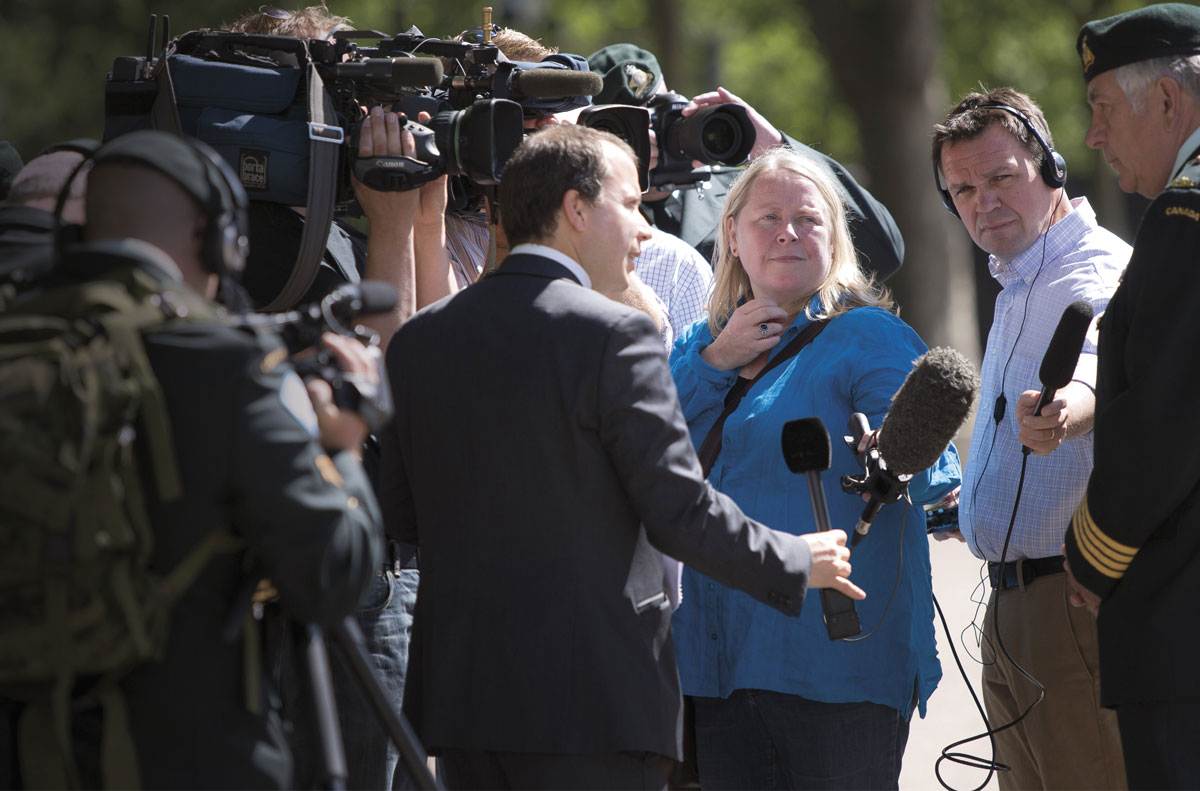
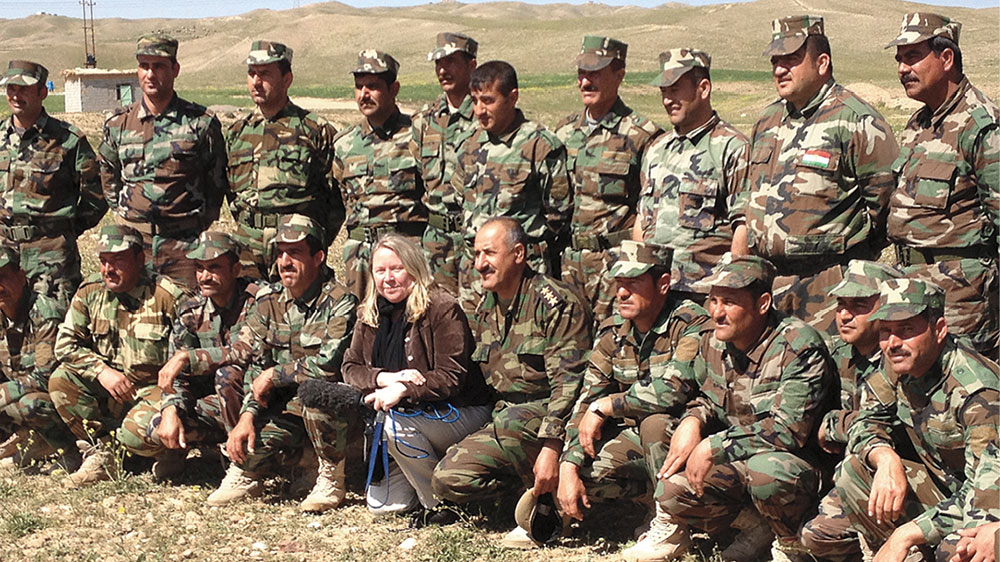
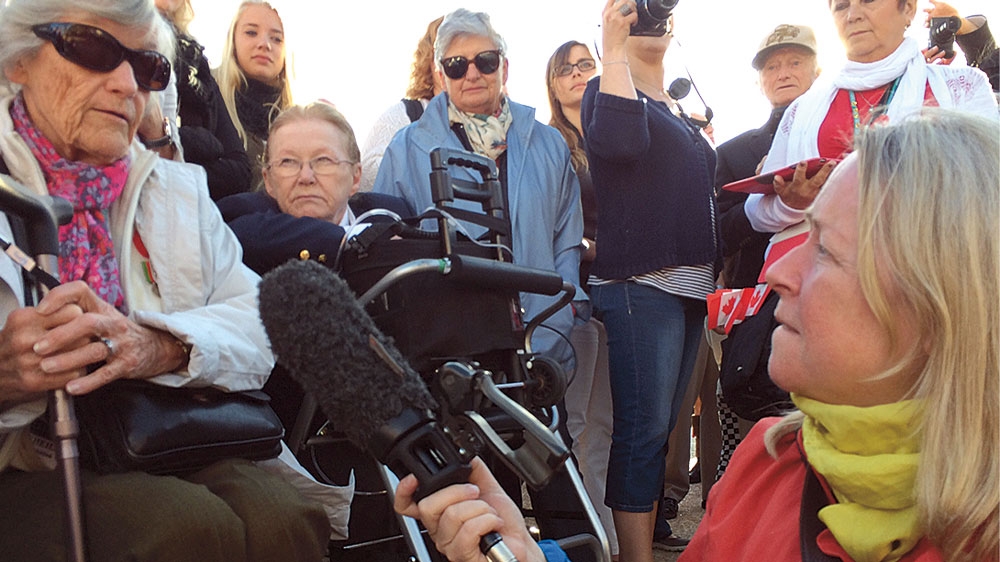
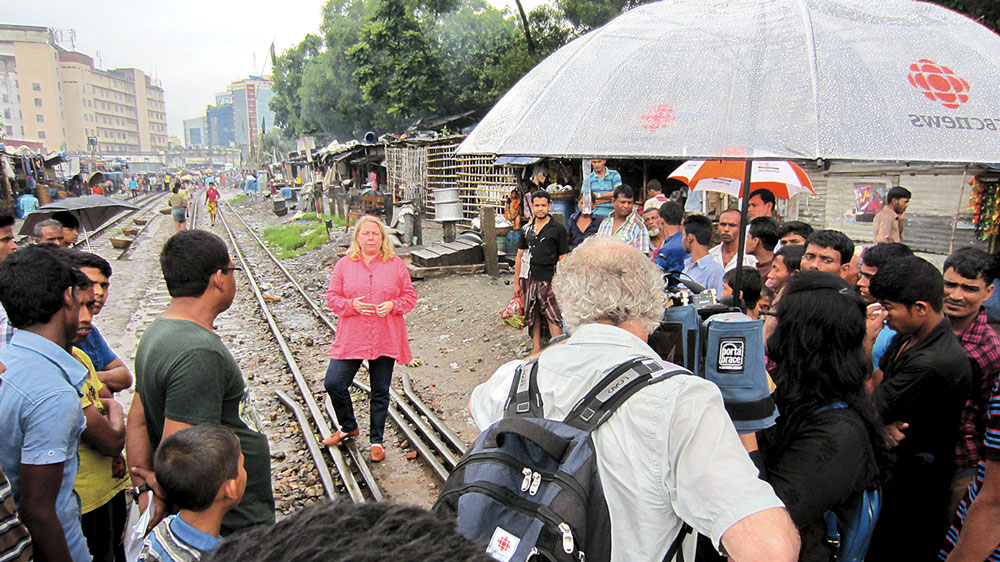
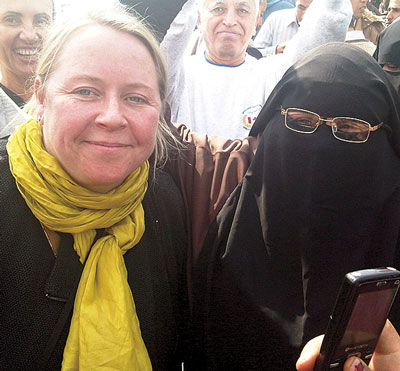
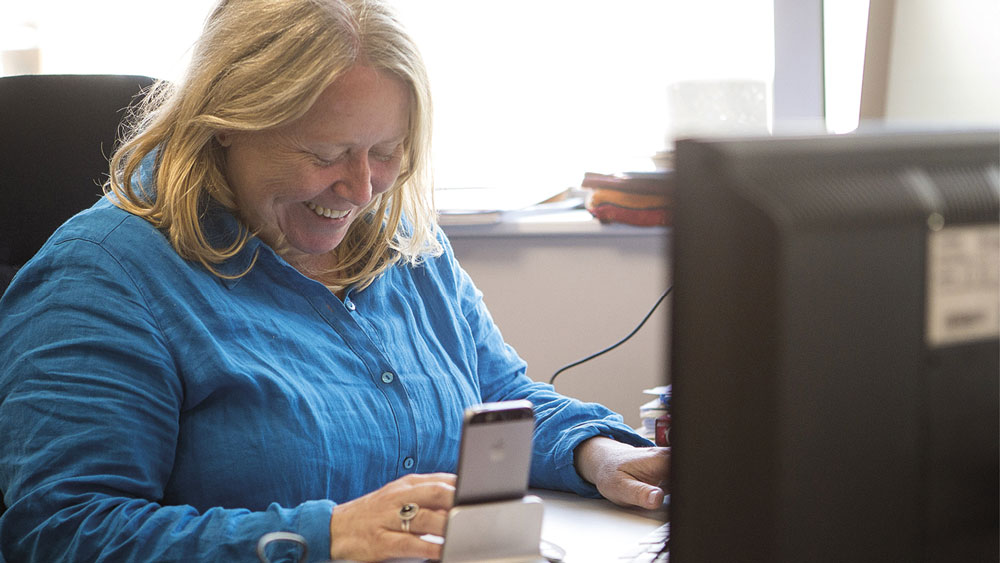
We at New Trail welcome your comments. Robust debate and criticism are encouraged, provided it is respectful. We reserve the right to reject comments, images or links that attack ethnicity, nationality, religion, gender or sexual orientation; that include offensive language, threats, spam; are fraudulent or defamatory; infringe on copyright or trademarks; and that just generally aren’t very nice. Discussion is monitored and violation of these guidelines will result in comments being disabled.